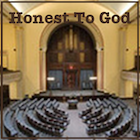
 This past Shabbat at Ansche Chesed we heard a presentation from Dov Elboim, a well-known Israeli writer, editor and television host, a face of the phenomenon called hazara bi’she’ela, “returning with questions,” a pun meaning “those who left ultra-Orthodoxy.” Dov was recently profiled here in Haaretz. Hebrew readers will also enjoy his excellent book Journey in the Void, a reflection on suffering, longing and his own wrestling with God. [Reviewed here].
This past Shabbat at Ansche Chesed we heard a presentation from Dov Elboim, a well-known Israeli writer, editor and television host, a face of the phenomenon called hazara bi’she’ela, “returning with questions,” a pun meaning “those who left ultra-Orthodoxy.” Dov was recently profiled here in Haaretz. Hebrew readers will also enjoy his excellent book Journey in the Void, a reflection on suffering, longing and his own wrestling with God. [Reviewed here].
Dov’s Friday night TV program Mekablim Shabbat “Greeting Shabbat” on the weekly Torah reading is a hit – at least among that sector of the population who watch TV on Shabbat, but who want to discuss the weekly Parasha. I’m tempted to wonder how many of those can there possibly be. But he said he draws about 10 percent of the Friday night viewing audience. You can see examples on YouTube.
Elboim was here in America connected with his work with the Bina Center for Jewish Culture , a fabulous organization where my own son will be studying next year. (A great organization deserves support.) In my humble opinion, the most critical cultural question in Jewish life is the Jewish character of Israeli life. What Jewish values does Israeli society hold dear? What is its connection to our intellectual and spiritual heritage? What texts and teachings shape the inner life of the “secular” Israeli? What kind of Jew does she or he aspire to be?
Along with a few other organizations, Bina and its incredibly engaging and deep teachers seek to develop a new Jewish language that will permit so-called “secular” people to build meaning through an engagement with classical Jewish sources. The woeful Judaic ignorance on the part the secular majority is – to borrow a term from the political realm – an “existential threat” to Jewish society. We liberal American Jews are also vastly ignorant. But of course the Israelis speak Hebrew, which is both worse (more indefensible) and better (more easily remedied).
But public ignorance is maybe only 49 percent of the problem. It is matched by the inappropriateness of the conventional religious vocabulary, which bars the “secular” population from the richness of the Jewish religious tradition. Jewish life is all too fragmented in Israel, with precious little contact among different population sectors, and precious little exposure to Torah discourse in a compelling way.
What does Torah have say to the lives of people who are not conventionally observant? In truth, EVERYTHING. But you wouldn’t know it from Israeli public life. The spokespeople for the religious tradition are all too often associated with the fanaticism, superstition, bigotry and hypocrisy of ultra-Orthodox enclaves, and the messianism and triumphalism of religious Zionism, difficult to extricate from right-wing politics. How is any one supposed to discover the subtlety, depth and humanism in the Torah from those guys?
My Israeli religious heroes include those of the religious Zionist center-left – still kicking, in a few hardy corners – and especially the folks around secular initiatives like Bina, who are striving to develop a whole new language for talking about Torah and religion. This language won’t resolve into simplistic binary questions about authority: do you or don’t you submit to Jewish law? It won’t be a reactionary loyalty to traditional norms. And by the way, I am loyal to traditional norms. But I don’t think the ultimate point of religion is conformity.
The point instead is to discover the spiritual and moral aspirations within our norms, and apply them to our world and to our lives.
On this point, Elboim said one of the best things I ever heard. This past Shabbat, someone asked him about why he left his own ultra-Orthodox world as a high schooler. “I was too religious to be Orthodox,” he replied.
He meant, I think, that life and Torah hold too much sacred possibility to be exhausted by microscopic conformity to rules – even holy and beautiful rules – in self-segregated “gated communities.” And that life is too full of meaningful sanctity to be restricted to what we conventionally call “religious observance.” (Admittedly, if it is to be Jewish it must find expression in shared communal norms and deeds. These new Torah norms are still forming.)
We all still only stammer this new vocabulary. Words like hiloni/”secular” and dati/”religious” are overly crude binaries to describe what I, at least, would like to see the Jewish people learn to become. We’ve only begun to discover life’s latent possibilities for that special mix of virtue, refinement, spiritual aspiration, social responsibility, learning and worship worthy of the name Torah.
That’s what I aspire to, at any rate. At my best, I should be fortunate to emulate Elboim and be “too religious to be Orthodox.”
- Nedarim, Daf 79 - January 12, 2023
- Nedarim, Daf 78 - January 11, 2023
- Nedarim, Daf 77 - January 10, 2023
